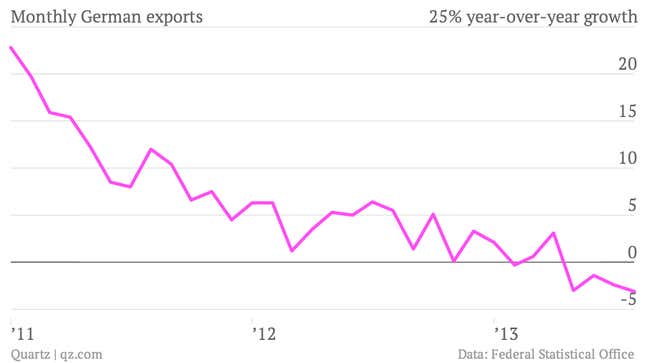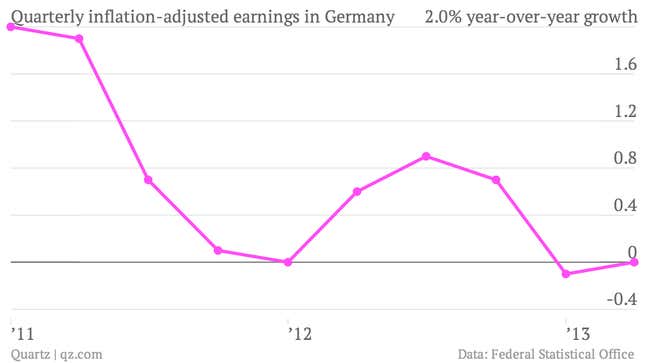
Germany’s export machine is a long way from running at full throttle. August exports, released today, grew by 1% from the previous month, reversing an unexpected decline in July. Still, compared with the previous August, exports are down by more than 3%. Exports in the first eight months of the year are down by around 1% versus 2012.
In the latest batch of data, the biggest cause for concern is the 7.2% monthly plunge in exports outside of the EU. Germany is counting more on trade with fast-growing economies outside of Europe than on selling to its weaker neighbors.
In theory, healthy German exports also raise the purchasing power of German consumers and businesses, who use their earnings to buy more from European countries. But German imports are even weaker than exports, falling by 1.4% in the year to August.
The country’s current account, which includes the balance of trade and other sources of foreign income, is a hefty €115 billion ($156 billion) in surplus so far this year, little changed from the same period last year. Many believe that Germany needs to save less and spend more to boost neighboring economies.
Another set of data published today shows why this isn’t happening. Adjusted for inflation, the average German’s earnings are stagnant. Wages have only just kept up with inflation so far this year, so German consumers, already known for their thrift, are hardly flush. The introduction of a minimum wage, a key point of debate during the recent federal election, reflects the restlessness of German workers who power the export industry but don’t necessarily share in the spoils.

So even though Germany’s jobless rate is one of the lowest in Europe, confidence surveys are buoyant, and broad approval of the country’s policies gave chancellor Angela Merkel a huge election win last month, the German economy, as one analyst put it, is only running on “medium steam.”